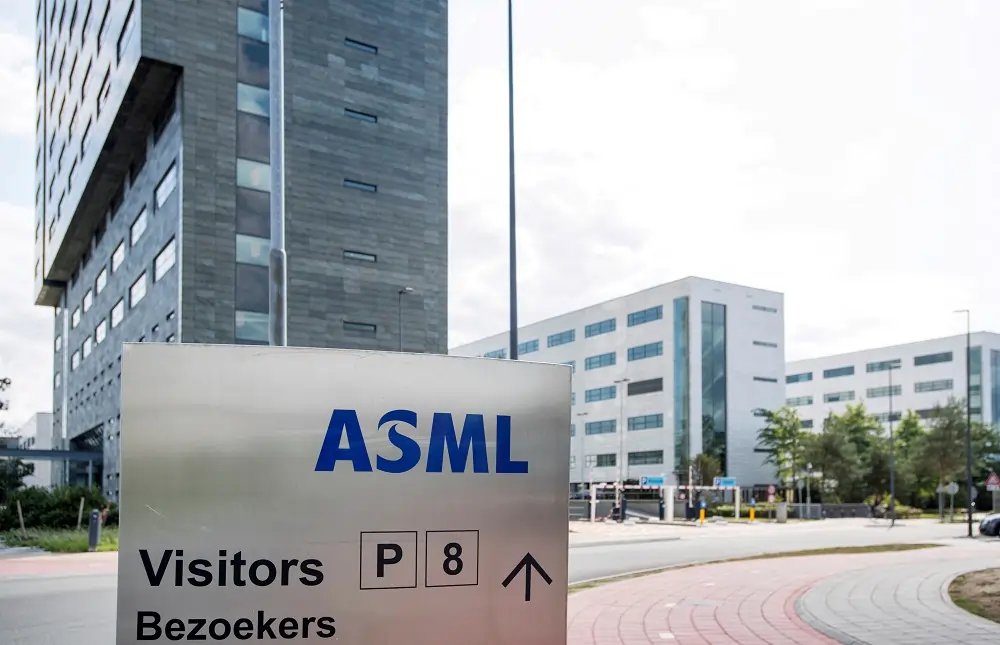ASML sees growth continuing through 2030 on AI demand
Published by Jessica Weisman-Pitts
Posted on November 14, 2024
2 min readLast updated: January 28, 2026

Published by Jessica Weisman-Pitts
Posted on November 14, 2024
2 min readLast updated: January 28, 2026

By Toby Sterling and Nathan Vifflin
AMSTERDAM (Reuters) – Europe’s largest tech firm, computer chip equipment maker ASML, said on Thursday it expected sales growth to average 8% to 14% over the coming five years, as a boom in AI fuels strong demand for its most advanced tools.
The guidance, which analysts said was reassuring, came in a statement ahead of the company’s investor day at Veldhoven in the Netherlands, when it will face questions on prospects for sales to China after Donald Trump was elected as U.S. president.
“We expect that our ability to scale EUV technology into the next decade … positions ASML well to contribute to, and leverage the artificial intelligence opportunity,” Chief Executive Christophe Fouquet said in a statement, referring to the company’s most advanced chip making equipment.
This would allow ASML to deliver significant revenue and profitability growth, he added.
The company forecast revenue of 44-60 billion euros ($46-$63 billion) by 2030, and gross margins of between 56% and 60%, unchanged from the company’s previous long-term guidance issued in 2022.
Analysts said that was reassuring, after third quarter earnings in October missed analysts’ expectations by the most in years, as customers such as Intel and Samsung delayed orders for equipment amid weakness in chip markets other than AI.
“The first glance looks positive,” said Kevin Wang of Mizuho Securities, adding that some investors had expected a cut in guidance. “Management remains bullish on ASML’s sales and profitability growth.”
Before the start of trade in Amsterdam, Frankfurt-listed shares rose 2.6% to 647.20 euros.
Chipmakers such as top ASML customer TSMC of Taiwan, which manufactures AI chips for Nvidia, use ASML’s EUV tools to create circuitry.
The company is banned from selling its EUV and most of its DUV lithography equipment in China following waves of curbs by the U.S. and Dutch governments that began in Trump’s first term.
In October, ASML said it expected China sales to fall to 20% of total sales after a contribution of more than 40% over the past six quarters.
ASML is still able to sell relatively older “dry” DUV product lines in China without restrictions.
($1=0.9478 euros)
(Reporting by Toby Sterling and Nathan Vifflin; Editing by Clarence Fernandez and Mark Potter)
Artificial intelligence (AI) refers to the simulation of human intelligence in machines that are programmed to think and learn like humans. AI can perform tasks such as problem-solving, understanding language, and recognizing patterns.
Sales projections are estimates of future sales revenue based on historical data, market analysis, and trends. They help businesses plan for growth and allocate resources effectively.
Market demand refers to the total quantity of a product or service that consumers are willing and able to purchase at a given price over a specific period. It is influenced by various factors, including consumer preferences and economic conditions.
Stock market response refers to the reaction of stock prices to news or events related to a company or the market. Positive news can lead to price increases, while negative news can cause declines.
Explore more articles in the Business category











